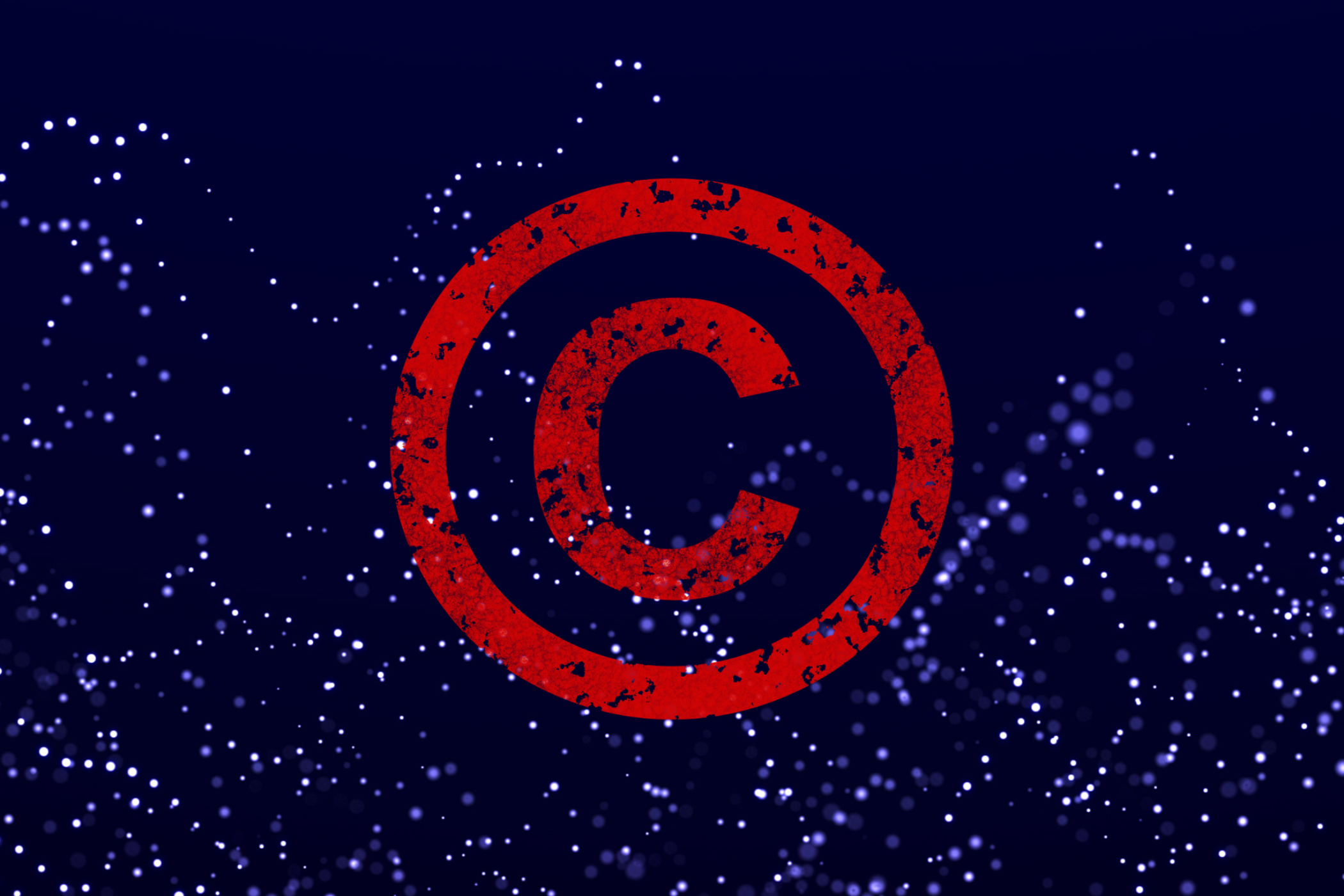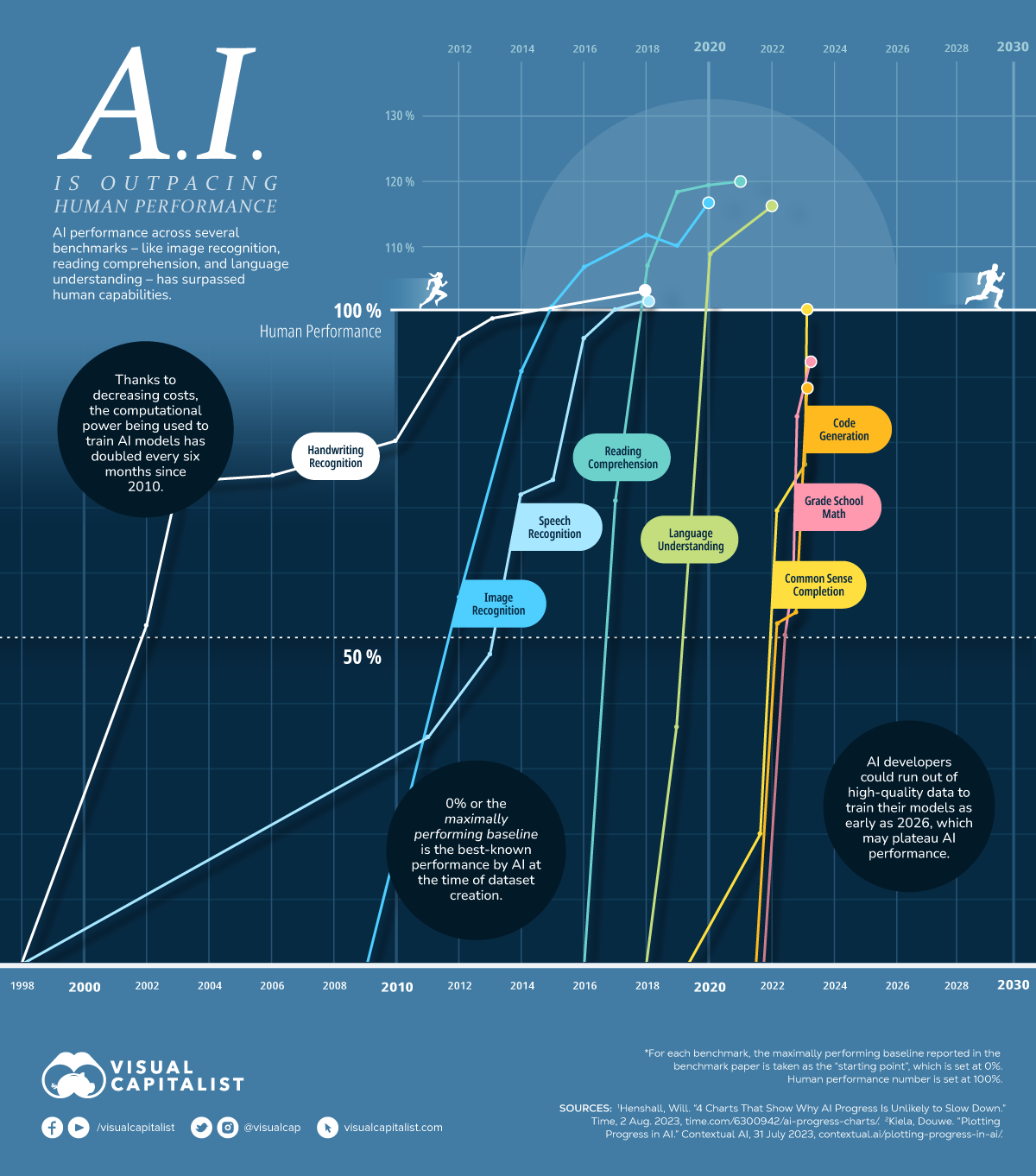Copyrights In the Age of AI: Is This The End?
NY Times VS OpenAI

NEW YORK TIMES SUES OPEN AI INTRO
Imagine this: You are using generative AI, and you type a prompt on ChatGPT,
“You’re a New York Times writer, please write an article that explains the future of creative works.”
It produces a compelling article worthy of being in the New York Times.” You then use it for your publication and get paid for it.
You’re now earning money without having to put in hours of work. ChatGPT has already done the work for you, with millions of New York Times articles at its disposal,
it can write an article worthy of a Pulitzer prize. Thanks to decades of work from the NY Times, you have found a money-printing machine.
But wait a minute, is this fair?
Well, the New York Times doesn’t think so, that’s why they are suing OpenAI, the world’s most influential AI company for copyright infringement.
Interestingly before this lawsuit OpenAI had announced that it would defend businesses using their products if they face claims around copyright infringement.
Was this foresight or could they see a legal storm on the horizon?
Let’s take a step back.
HOW DID IT ALL START?
It all began when the New York Times approached OpenAI to notify them they were using their content to train their generative AI models without permission,
which they claim is unlawful.
NY Times sought to negotiate how OpenAI could pay them for the use of their articles. They had already had similar negotiations with companies such as Meta and Apple and reached agreements. However, Open AI then responded that it would do no such thing.
Here is how OpenAI replied:
OPEN AI REPLY
They claimed that their use of NY Times content to train their generative AI models is protected by the law of “fair use”. What is fair use? Fair use allows for material to be used without permission in specific cases, this includes for educational and research purposes.
However, Open AI is a commercial company that aims to make a profit. So does the law of fair use legally protect the company? Did Open AI take the right step in claiming fair use? well, the law can guide us.
WHAT DOES THE LAW SAY?
The law states that a company can use copyrighted information to develop work. So OpenAI can use copyrighted information to train their Generative AI, however, it must produce new work, and if the work produced is the same it would be unlawful.
Using copyrighted information would also be unlawful if the value of the original creator’s work (in this case, NY Times) is negatively affected. for example, the NY Times making less profit because of OpenAI using their work.
Although the law does offer certain protections to creators and certain limitations on the use of copyrighted information, the topic of fair use regarding generative AI needs to be discussed further to progress.
Below are some notable claims from the lawsuit;
THE DETAILS: WHAT THE NY Times is SUING OpenAI FOR
- “Defendants’ unlawful use of The Times’s work to create artificial intelligence products that compete with it threatens The Times’s ability to provide that service.”
- “Microsoft’s Bing search index, which copies and categorizes The Times’s online content, to generate responses that contain verbatim excerpts and detailed summaries of Times articles that are significantly longer and more detailed than those returned by traditional search engines.”
- “This commercial success is built in large part on OpenAI’s large-scale copyright infringement. One of the central features driving the use and sales of ChatGPT and its associated products is the LLM’s ability to produce natural language text in a variety of styles. To achieve this result, OpenAI made numerous reproductions of copyrighted works owned by The Times in the course of “training” the LLM”
- “Upon information and belief, all of the OpenAI Defendants have been either directly involved in or have directed, controlled, and profited from OpenAI’s widespread infringement and commercial exploitation of Times Works.”
OPENAI replies about the above claims;
“Interestingly, the regurgitations The New York Times [cites in its lawsuit] appear to be from years-old articles that have proliferated on multiple third-party websites,”
OpenAI writes. “It seems they intentionally manipulated prompts, often including lengthy excerpts of articles, in order to get our model to regurgitate. Even when using such prompts, our models don’t typically behave the way The New York Times insinuates, which suggests they either instructed the model to regurgitate or cherry-picked their examples from many attempts.”
- OPENAI
We Leave it there with the Lawsuit.
The Big Picture: what does the introduction of Generative AI mean for the future?
Can the past teach us anything? How should businesses navigate these changes?
A look at the past
Throughout History, Humans have expressed themselves, from pigments to the printing press, symbols and communications. The forms of expression gave us humans a way to survive in a world that was more unpredictable. People used their thoughts and turned their thoughts into action by creating, from carvings to sculptures to painting and writing, our hands were the tools that we needed to transfer thought into that form of expression.
We now have advancements in AI that mean there is once again a potential to change education forever. A lot more people now have access to the internet and many learners are using AI tools, while schools are working very hard to police these tools and while they’re policing it learners are getting smarter at using them strategically. But you can’t police forever, sooner or later there will be no choice but to start making changes right. I’m not so sure, there are aspects that are very important to consider when looking at change.
The advancement of Generative AI has now left us asking ourselves the question. Can an instruction to a computer be considered a creation? or is an instruction just that? After doing a thought exercise, we concluded that in future our understanding of creation will fundamentally change if generative AI is a tool that we use. This will give birth to artists who will understand how to use AI to create and therefore creation might be understood and perceived differently in the future.
If we look at how the introduction of the printing press, paved the way for copyright law in the 15th century.
You can’t help but think if we’re encountering a similar moment. However, Generative AI is very different to the printing press.
Printers did not create the work they just mass-produced it. This is the fundamental difference. OpenAI is not the new printing press,
the company uses a lot of copyrighted works to train their models. These works can be transformed into other works for profit.
We are moving from a world where creation is understood and protected under copyright law. To a world where creation has become blurry and the law has to be redefined. what counts as creation and who has the economic rights to use works created with Generative AI?
What’s the driving force of this change?
The driving force behind this is Generative AI, for the first time in history we have a technology that has advanced quickly in terms of having human-like capabilities. The ability to read and to comprehend, Language Understanding speech recognition also handwriting recognition. Which poses different types of questions.

What will the world be like if AI gets amplified?
If we had to consider what the world would be like namely the negative aspects; the growing use of Artificial Intelligence on individuals, possibly in the future articles previously written by people would be written through the use of generative AI, this means the copyright and intellectual property laws of individual would have to be reimagined.
This can extend to how we currently view the value of creations. Artworks of the future will mostly be created through the use of Generative AI, artwork made by hand to be a relic of the past. work such as creative directing could be tackled by generative AI. The possibilities are endless.
Is this the possible future we want?
From a negative point of view, this could lead people to become lazier due to people relying on the use of generative AI to do some/most of the work, this could lead to a decline in people wanting to create and think by themselves because if we’re being honest who wouldn’t want to let something do the work for you for half of the effort.
However, throughout history, every time new technologies are invented the human mind tends to think about the negative and this is because of fears of the Unknown, we are wired for safety and innovation comes with a lot of unknowns. When the printing press started fear was that “Writing will create forgetfulness in learners' souls”, when electricity was introduced around a headline that read, “There is no safety and death lurks all around us”, and when the internet “It was said that it will make us stupid”.
A poll taken by the AI Policy Institute regarding concerns about AI:
- •” 86% of voters believe AI could accidentally cause a catastrophic event, and 70% agree that mitigating the risk of extinction from AI should be a global priority alongside other risks like pandemics and nuclear war.”
- •” 76% of voters believe artificial intelligence could eventually pose a threat to the existence of the human race, including 75% of Democrats and 78% of Republicans.”
AI Policy Institute
What if Generative AI will make us better writers or creators of works, what if it will increase accessibility to those who are disabled and have been unable to capture their thoughts of great artworks in masterpieces, what if it makes us more efficient? We have to also understand that there are upsides to AI and it could change our world forever.
What does this mean for other Businesses?
Andreessen Horowitz, a venture capital firm and early backer of OpenAI, wrote in comments to the U.S. Copyright Office that exposing A.I. companies to copyright liability would “either kill or significantly hamper their development.”
However, shouldn’t we be cautious about taking Horowitz’s comments in the above quote as a reason to put OpenAI on a pedestal? It could potentially allow them to circumvent existing copyright infringement laws that already apply to writers and creators.
Companies that use Generative AI to create content/work such as those of OpenAI need to be mindful of the law using these services.
This involves clarifying that the work produced through these services is not similar to that of other companies because they could face lawsuits.
Companies should also be mindful that the work they produce through these services doesn’t deteriorate their brand over time.
Generative AI can create similar content as other companies. attached are the terms of service for OpenAI indicating the legal implications.
[Your Content.] You may provide input to the Services (“Input”), and receive output from the Services based on the Input (“Output”). Input and Output are collectively “Content.” You are responsible for Content, including ensuring that it does not violate any applicable law or these Terms. You represent and warrant that you have all rights, licenses, and permissions needed to provide Input to our Services.”
[Similarity of Content.] Due to the nature of our Services and artificial intelligence generally, output may not be unique and other users may receive similar output from our Services. Our assignment above does not extend to other users’ output or any Third Party Output.
Open AI Policy
In Closing:
One thing is clear Generative AI development and use is moving fast and we will have to re-imagine our world with Generative AI as the norm. New laws and policies will have to be put into place.
Written By: A. Ikaneng & Thato BranderReferences
https://techcrunch.com/2023/11/06/openai-promises-to-defend-business-customers-against-copyright-claims/
https://www.npr.org/2023/12/27/1221821750/new-york-times-sues-chatgpt-openai-microsoft-for-copyright-infringement
https://www.documentcloud.org/documents/24241000-2023-12-27-nyt-dkt-1-complaint
https://www.copyright.gov/help/faq/faq-fairuse.html
https://techcrunch.com/2023/10/06/some-gen-ai-vendors-say-theyll-defend-customers-from-ip-lawsuits-others-not-so-much/
https://www.copyright.gov/fair-use/index.html
https://www.arl.org/copyright-timeline/
https://theaipi.org/poll-shows-overwhelming-concern-about-risks-from-ai-as-new-institute-launches-to-understand-public-opinion-and-advocate-for-responsible-ai-policies/
https://humanorigins.si.edu/human-characteristics/language-symbols
https://www.cnbc.com/2024/01/08/openai-responds-to-new-york-times-lawsuit.html